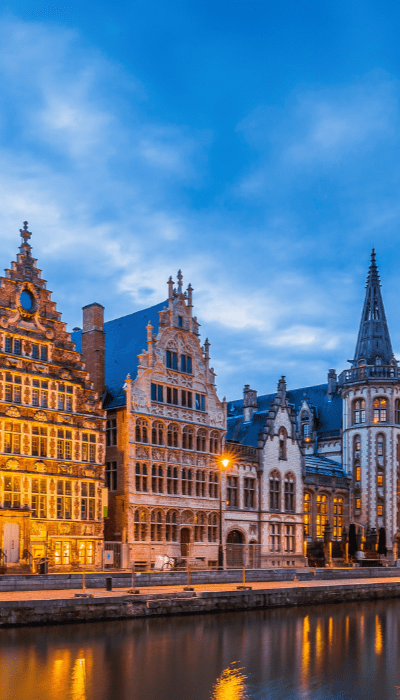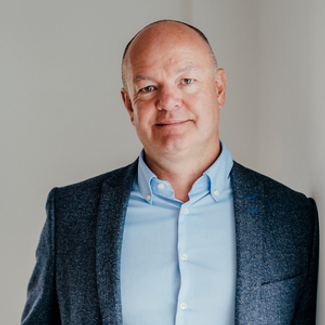Have you ever considered that your aviation career could take you to Belgium?
Belgium is located in Western Europe, with a population of 11.5 million people. It is well-known for offering high standards of living, quality of life, as well as healthcare and education.
We wanted to share why we believe Belgium is a great place to live and work as a Pilot and provide you with a great starting point of everything you will need to know before making the move.
1. Language
The population is divided into three linguistic communities. The local language will depend on where you choose to live, although there are a lot of bilingual natives, particularly in the capital Brussels. The three languages are split between the southern provinces (French), north and north-east provinces (Dutch) and the east (German).
No matter what part of Belgium you choose to live in, you will benefit from buying a small phrasebook to carry around with you. It will pay off to learn some phrases to use with the locals or you might even benefit from signing up to a local language school to learn the local language and meet new people.
2. Climate
The weather and climate in Belgium are predominantly influenced by the air masses from the Atlantic and can be considerably variable. Winters are damp and cool with frequent fog and heavy, rainfall. Summers are rather mild with a mean temperature in July of 22 degrees. An average January will fall to 0 degrees.
3. Food and Culture
With such an ethnically diverse population and so many business travellers to the region, it’s no surprise that Belgium hosts some of the best restaurants in the world, many of which can be found in the most influential restaurant guides, such as the Michelin Guide.
Belgium is famous for many of its fine foods and is most notorious for its chocolate, beer, waffles and mussels with french fries. All local foods that we would highly recommend indulging in once and a while.
Belgian’s rich heritage makes it an artistic centre of considerable importance. The paintings of the Flemish masters are on display in museums and cathedrals across the country. World-renowned music, fashion and art festivals take place alongside smaller free events, meaning there is always something going on to entertain and delight.
4. Healthcare
Healthcare in Belgium is financed through both social security contributions and taxation. Health insurance is compulsory. It is delivered by a mix of both public and private systems of independent medical practitioners and public, university and semi-private hospitals. Healthcare services are payable by the patient and reimbursed later by health insurance institutions.
5. Accommodation
Belgium is a nation of homeowners (among the highest in western Europe), with many locals preferring to live in single-family houses. There are no restrictions on ex-pats buying Belgian property, however, we would recommend considering renting first as it is easier to learn the market before making a big investment.
The phrase ‘short-term tenancy’ has a specific meaning in Belgium where it refers to a tenancy of fewer than three years that is not a holiday let. This allows greater flexibility for ex-pats on a short contract or those looking to buy a home in Belgium. Very short contracts may be difficult to find, although there is a wide selection of holiday homes and serviced apartments available.
There are two main options in Belgium when finding a place to rent. Either using a real estate agent (agences immobilières/ makelaar) or an online property portal. Just remember, before you finalise a rental contract you will need to arrange a rental guarantee and an inventory of fixtures.
6. Cost of living
The standard of living in Belgium is very high, and this is accompanied by a relatively high cost of living. However, If you are moving from another European country it may offer a cheaper alternative than your home country.
7. Belgium checklist
If you decide to move to Belgium, there are some must-dos on arrival:
Register at your local town hall
Within 8 days of arriving, anyone who plans to live in Belgium longer than three months must register with their local town hall. Citizens from the European Economic Area (EA plus Iceland, Liechtenstein and Norway) and Switzerland do not require a Belgian visa or permit but you still must register with your local town hall after arriving in Belgium
Register for social security
All Belgian residents have to pay contributions to their social security and healthcare. Your employer will normally do it, but make sure you check. Both employers and employees make monthly contributions toward social security. You must do this to sign up for health insurance
Register with a Belgian healthcare insurer
Once in Belgium, you must register with a state insurance scheme (known as mutuelle/ziekenfonds). This enables you to access state Belgian healthcare. The registration is critical if you want to claim reimbursements on medical expenses while living in BelgiumCheck if you need a Belgian driving licence
Whether or not you will need a Belgian driving licence will depend on where come from. Residents of the EU/EAA can use the licences issued in their home countries. Non-EU/EAA nationals will need to exchange their license for a Belgian driving license within six months of relocating.
GOOSE loves to talk to Aviation Professionals from across the world
Follow GOOSE Recruitment on LinkedIn, Facebook and Twitter for the very latest aviation news, updates, exclusive insights and regular hot jobs.






